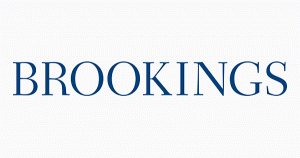Home
Use our global calendar of privacy events to locate an event near you.
FILTER BY

———————
For over thirty years has the ACM Symposium on Applied Computing been a primary gathering forum for applied computer scientists, computer engineers, software engineers, and application developers from around the world. SAC 2018 is sponsored by the ACM Special Interest Group on Applied Computing (SIGAPP www.acm.org/sigapp). Its proceedings are published by ACM; they are also available on the web through the ACM Digital Library www.acm.org/dl. More information about SAC 2018 can be found at www.sigapp.org/sac/sac2018/
The Privacy by Design in Pract
——————————
The aim of this track is to promote research on privacy-preserving technologies to be used in practice. “Privacy by Design” is a requirement in the new EU data protection regulation, which will be applied in the EU countries from May 2018. Thus, privacy needs to be considered by engineers from the beginning and built in to newly developed systems properly.
The track seeks submissions from academia, industry and public authorities (e.g. data protection agencies) presenting novel research on how to implement Privacy by Design i
Topics of the track include, but are not limited to:
– Privacy Engineering
– Privacy-enhancing Technologies
– Anonymization and Pseudonymization
– Privacy in the Internet of Things (e.g. Smart Home, Smart City, Connected Cars, Smart TV, Smart Grid, etc.)
– Privacy and Quantified Self
– Privacy Laws and their impacts on technology
– Conflict between Privacy and Security
Important Dates
———————-
September 15, 2017: Submission of regular papers and SRC research abstracts
November 10, 2017: Notification of paper and SRC acceptance/rejection
November 25, 2017: Camera-ready copies of accepted papers/SRC
December 10, 2017: Author registration due date
April 9 – 13, 2018: SAC 2018 in Pau, France
Track Program Chairs
—————————–
– Ronald Petrlic, Commissioner for Data Protection Baden-Württemberg
– Christoph Sorge, CISPA, Saarland University
Program Committee
—————————-
Claude Castelluccia, INRIA France
Tooska Dargahi, University of Rome Tor Vergata, Italy
Martin Degeling, CMU USA
Isao Echizen, National Institute of Informatics, Japan
Felix Gomez Marmol, Universidad de Murcia, Spain
Bart Knijnenburg, Clemson University, USA
Sebastian Pape, Goethe University Frankfurt, Germany
Andreas Reiter, TU Graz, Austria
Burkhard Schafer, University of Edinburgh, GB
Francesc Sebe Feixas, University of Lleida, Spain
Dirk Westhoff, University of Applied Sciences Offenburg, Germany
Submission Guidelines
——————————
The submission guidelines must be strictly followed for a paper to be considered.
Original papers from the above mentioned or other related areas will be considered. Only full papers about original and unpublished research are sought. Parallel submission to other conferences or other tracks of SAC 2018 is forbidden. Each paper must be BLIND in the sense that it must only include its title but not mention anything about its authors. Self-citation must be in third person, such as “Smith et al. [citation] showed…”. All submissions must be formatted using the ACM conference-specific LaTeX style, which can be obtained from the symposium web page. All papers must be submitted by the deadline stated above.
Papers must be submitted through the symposium-wide paper management system for SAC 2018 athttps://www.softconf.com/h/s
Review and publication of accepted papers
——————————
Each paper will be fully refereed and undergo a blind review process by at least three referees. Accepted papers will be published in the ACM SAC 2018 proceedings. Some papers may only be accepted as poster papers, and will be published as extended abstracts in the proceedings.
Student research abstract competition
——————————
Graduate students are invited to submit research abstracts at www.softconf.com/h/sac-src2
More information can be found at: www.legalinf.de/pbd2018
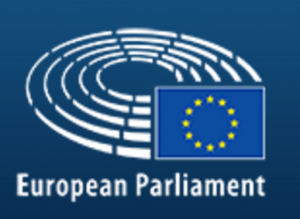
On 10 January 2017 the Commission has presented a proposal for a Regulation concerning the respect for private life and the protection of personal data in electronic communications and repealing Directive 2002/58/EC) (ePrivacy Regulation).
The ePrivacy Directive (2002/58/EC) set forth rules guaranteeing the protection of privacy in the electronic communications sector. It aimed to ensure that the protection of confidentiality of communications, in line with the fundamental right to the respect of private and family life enshrined in Article 7 of the EU Charter of Fundamental Rights, is guaranteed.
The proposed ePrivacy Regulation takes account of the important technological and economic developments in the electronic communication sector since the adoption of the ePrivacy Directive in 2002, where new services of interpersonal communications coexist in parallel with traditional communication services and presenting a similar impact on the privacy and the protection of personal data of individuals. These new services were not submitted to the protections of private life and data processing set out in Directive 2002/58 resulting therefore in a void of protection.
The proposal expands its scope to cover the new forms of electronic communications and ensure the same level of protection of individuals regardless the communication service used. It also update the current rules on the e-Privacy Directive 2002/58/EC to align with the new EU data protection legal framework established by the General Data Protection Regulation (EU) 2016/679. It takes account of experience gained over the years regarding cookies and other tools enabling tracking of individuals and seriously impacting on the private life and confidentiality of communications. Finally, it takes stock of the recent case law of the Court of Justice.
Similarly to the articulation between the ePrivacy Directive 2002/58/EC and the Directive 95/46/EC, the proposed ePrivacy Regulation particularises and complements the General Data Protection Regulation 2016/679. The rules of the ePrivacy Regulation should not lower the level of protection afforded by the General Data Protection Regulation.
The proposal would increase trust and security of digital services contributing to the achievement of the Digital Single Market Strategy.
This hearing addresses different elements of the new proposal in order to provide the European Parliament with the views of the main actors involved: telecommunications sector, new communication services provides (OTT), consumers, NGOs, professors, data protection authorities so as to obtain a broad and representative picture in view of the preparation of the LIBE Committee legislative report.
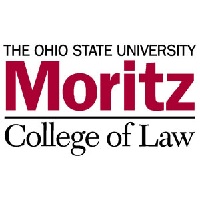
| Join the Program on Data and Governance on Tuesday, April 11, 2017, for a “Data Points: Ideas on Data, Law and Society” lecture series event featuring Dr. Lorrie Cranor, former chief technologist for the Federal Trade Commission and professor of computer science and engineering and public policy at Carnegie Mellon University. Dr. Cranor will deliver a talk on “Adventures in Usable Privacy and Security: From Empirical Studies to Public Policy.”
Why are usability studies important for security and privacy? How can researchers put study participants in realistic risky situations without actually putting them at risk? Why might it be counterproductive to mandate frequent password changes? And how are identity thieves able to hijack mobile phone accounts? Dr. Cranor will discuss the answers to these and other questions she has been exploring since she started her work as an academic usable security researcher and while she served as chief technologist at the FTC. |
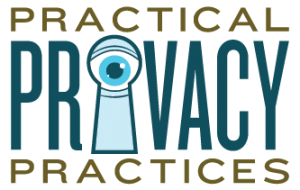
This webinar will highlight some actions that libraries can take to protect patron privacy in three important areas:
- How to configure and manage the integrated library system
- How to install free HTTPS certificates on your websites using Let’s Encrypt
- How to provide anonymous web browsing using TOR and other tools
Join us for this fast-paced presentation to get practical ideas on how to improve privacy at your library.

With cloud computing continuing to revolutionise the provision of IT services, and the promises and threats of the Internet of Things (IoT) growing by the day, legal and policy concerns surrounding technology are increasing salience and prominence. Existing and proposed regulatory and governance regimes place obligations on those who manage (process, analyse, use, and collect) data. The end-users of applications provisioned in the cloud and IoT also have certain rights that must be respected – various parties all bear varying degrees of responsibility, which must be properly managed.
Managing these rights and responsibilities is becoming increasingly complex, both technically and legally, particularly due to the emergence of new cloud services and models, as well as because of movements towards collaborative, decentralised and mobile clouds. For instance, the cloud will play an integral role in supporting the evolving IoT, which exacerbates issues of scale and data management while bringing real (physical) world considerations. The increasing prevalence of machine learning technology adds another degree of complexity.
Building on the successes of the previous workshops, CLaw 2017 aims to facilitate an interdisciplinary exploration of tech-legal challenges as regards emerging systems technologies.
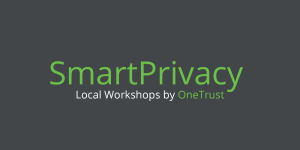
SmartPrivacy is a practitioner-focused, half day local workshop where privacy professionals can learn from each other about tools and best practices to operationalize their privacy programs.
The workshop is hosted by OneTrust, however is open to any privacy professional regardless of tool or template of choice.
A combination or structured educational sessions, peer-lead discussions, and networking allow organizations to share practical tips on topics such as GDPR compliance, how to perform a data inventory, identifying the key stakeholders/privacy champions within your organization, and how to get buy-in from executives.
Attendees can expect to receive access to free software tools, how-to guides, and best practices documents on the topics covered.
Workshop Agenda
12:00pm Lunch & Attendee Use Cases
12:30pm PIA/DPIA Workshop and Peer Panel
2:00pm Data Mapping Workshop and Peer Panel
3:30pm Topics of Interest and Discussion
4:30pm Networking and Cocktails
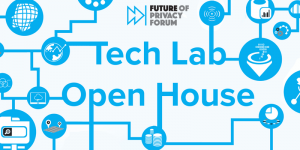
The 2nd Annual FPF Tech Lab Open House is an opportunity for us to welcome our members, friends, and colleagues in town for the IAPP Global Privacy Summit. Hosted at our home office in Washington, DC, this event provides a rare occasion for policymakers, regulators, and thought leaders to interact with the latest in privacy-impacting gadgets and new technologies.
Join us on Tuesday, April 18th, from 5:30 -7:30pm at the FPF Office and check out the latest in tech:
– Play with Smart Toys: CognitToys Dino, ChiP Robot, and more
– Outsmart our Smart Home gadgets
– Learn how Wi-Fi and Proximity Sensors can be used to track smartphones in our space
– Come face to face with facial recognition
– Experience virtual reality
– Share fun moments with Snap Spectacles
– And more!
Plus, network with locals and out-of-towners, engage in lively discussions about privacy, all while enjoying drinks and hors d’oeuvres.
Doors open at 5:30 pm; a short program begins at 6:00 pm with remarks from special visiting guests.
By invitation only. Please contact [email protected] for more information.
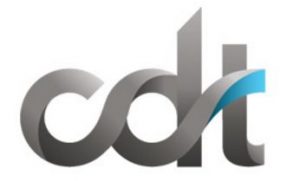
CDT’s 2017 Annual Dinner will take place on the evening of April 20, 2017, at the Washington Hilton. The evening, fondly known as Tech Prom, will feature the most influential minds of today’s tech policy world, and will highlight the most pressing issues in the field. It will also provide opportunities to mingle, connect, and exchange views with a variety of attendees from all sectors.
Event Details
Cocktail Reception
Dinner
Dessert Reception
Please contact [email protected] with any questions about next year’s event.
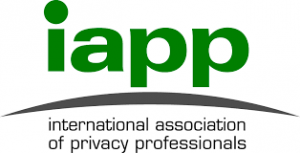
IAPP and Privacy Bar Section members— you don’t want to miss your chance to join IAPP President and CEO J. Trevor Hughes, CIPP, and Founding Privacy Bar Section Chair Christopher Wolf, along with a distinguished group of your peers and colleagues, at the Privacy Bar Section Forum 2017.
During this information-packed half-day event, you’ll hear from renowned keynote speakers and a distinguished panel of legal and privacy experts who’ll discuss such topics as the past and future of the privacy profession for lawyers, how to make the regulatory process less painful, how state attorneys general might approach privacy regulation under a Trump administration, and much more.
When
Friday, April 21, 2017
Where
Hogan Lovells US LLP
Columbia Square
555 Thirteenth Street, NW
Washington, DC 20004
Program
Friday 8 – 9 a.m.
-
REGISTRATION & BREAKFAST
Friday 9 – 9:15 a.m.
Friday 9:15 – 10:15 a.m.
Friday 10:15 – 11:15 a.m.
Friday 11:15 – 11:45 a.m.
-
REFRESHMENT BREAK
Friday 11:45 – 12:45 p.m.
Friday 12:45 – 2 p.m.
-
NETWORKING LUNCH
Register Now
Member Fee: $245
Government/Higher Education/Academic/Non-Profit: $125
IAPP membership required. Registration fee includes Privacy Bar Section first-year fee.
The Privacy Bar Section Forum is a great way to put an exclamation point on everything you’ll get out of the Global Privacy Summit 2017, which ends on April 20, but even if you don’t attend the Summit we want you to join us in DC for this anticipated event. Last year’s Forum was a resounding success and 2017 is shaping up to be even better—but seats are sure to go quickly, so please don’t delay.
Register now for the IAPP’s Privacy Bar Section Forum 2017.

